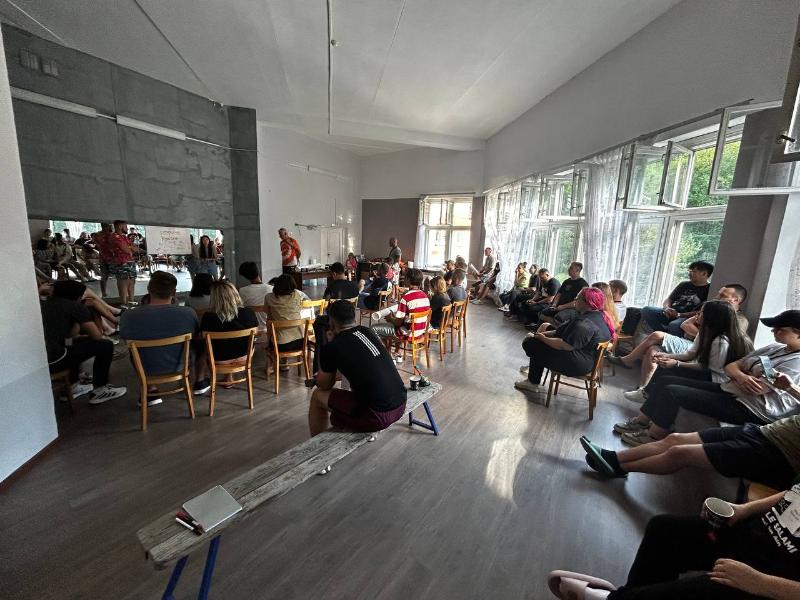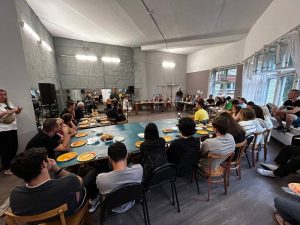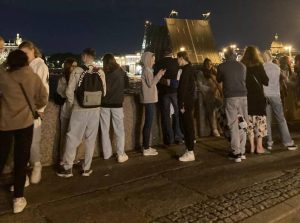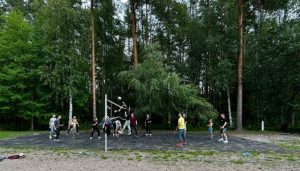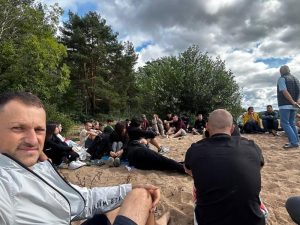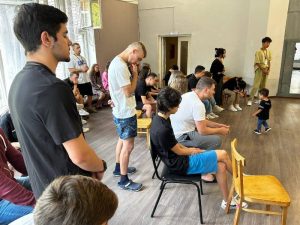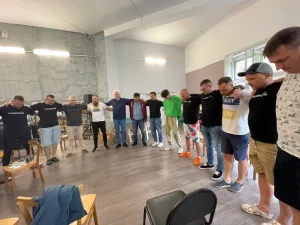Over the last several years, isolation has devastated young adults across the globe. Covid and war have hit the Eurasia North Field in an acutely painful way—cutting youth off from community and relationship. The evidence can be seen in schools, cities, and even church congregations. This spring, leadership across the region gathered, discussing the challenges faced by the rising leaders of the Church today.
Amid that gathering, Pastor Sergey and Vladimir, both serving youth in two different Districts on the Eurasia North Field, collaborated on how they could support young leaders and cultivate student-led discipleship on their field. They discovered a deficit their congregations shared—a growing gap of engaged young adults. Children and adults could easily identify their community within the body of Christ, but youth were falling through the cracks, unsupported and without a common vision.
“We understand this gap,” Sergey says. “For some time there was ministry to kids and adults, but we missed the youth. Teenagers don’t know who they are and where they should go.”
So the two men crafted a camp experience that aimed to unite, inspire, and empower students to embrace their role in the Church. Students from three districts came together to learn and grow as one.
“This Church is their Church,” Vladimir says of young believers today. “They are not part of somebody’s vision or ideas—this Church is Christ’s Church, and they are part of it. They have responsibilities in the present and future.”
Campers heard from day one the importance of unity and community as believers. A university professor came and spoke about the early Church, how Christians gathered and spent their time together.
“They had a holistic approach,” Vladimir says. “They didn’t have a special time for communion—they had this during eating. It was not divided into two different moments. It was a parallel for our life. We should not divide our life into church and ordinary.”
The team then focused on empowering youth to apply the lessons of the early church as they shared the love of Jesus. Particularly, campers were challenged to dig deeper when thinking about evangelism and the traditional notion that nonbelievers must find their way into a church building before finding Jesus. Camp leadership encouraged students to build relationships with nonbelievers within their schools, workplaces, and neighborhoods. “We go there with the goal to bring them light,” Vladimir says, “But in their territory.”
After camp ended, leaders were ready to watch campers honor their bold commitment to sharing Jesus in their communities. The results were creative, encouraging, and inspiring.
One youth group created a step-by-step plan on engaging their neighborhood through athletics, obtaining football and volleyball equipment and coordinating a regular gathering. The ministry is active and youth-led focused on sharing Jesus through sports.
On another district, young adults from different churches banded together to present a vision of inter-church ministry with pastors from around the city. They emphasized the importance of unity across congregations in an area where this has been historically challenging. Multiple campers returned home and stepped into discipling believers in their communities.
Today, Sergey and Vladimir could not be more excited about the future.
“I’m thankful to see we have so many leaders,” Sergey says. “It’s something we are very grateful for.” He adds that church leaders would be wise to engage with young adults in their own congregations.
“There was a point where ministry to teenagers was missed,” he says. “They were not helped—they grew up and made families and left.” Today, Sergey shares, he understands the importance of embracing, equipping, and empowering young adult believers.
“My hope, my dream, and my desire is that this camp was the beginning of strengthening future leaders,” Sergey says. “They have initiative, and it’s very inspiring.”
-written by Sarah Norris
